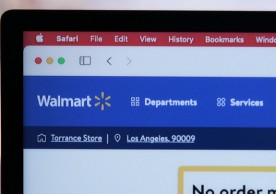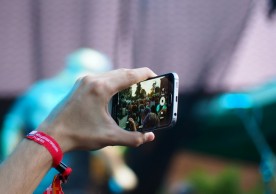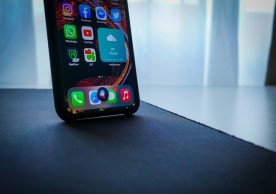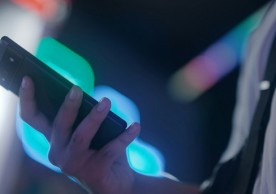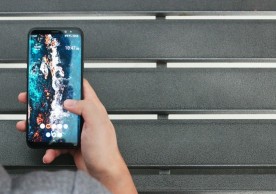AI-Powered Innovations: UIC Researchers Introduce Cutting-Edge Dentistry Tech with Blockchain and Phone Scans
AI-Powered Innovations: UIC Researchers Introduce Cutting-Edge Dentistry Tech with Blockchain and Phone Scans
Staff ReporterDental technology research is being pioneered by the University of Illinois at Chicago's College of Dentistry. Leading the way in the integration of artificial intelligence and big data in dentistry are Drs. Min Kyeong Lee, Maysaa Oubaidin, Veerasathpurush Allareddy, Flavio José Castelli Sanchez, and Mohammed H. Elnagar. They emphasized how tech can improve treatment and accessibility rather than just focusing on trends.
Through the research, they addressed complex issues such as cleft palates and fine-tuning AI systems to ensure justice.
Dr. Veerasathpurush Allareddy emphasized how inclusive AI concepts are shaped by their urban environment. Their advancements in 3D analysis, blockchain sharing, and home monitoring portend a revolution in dental care.
Their aim? Combine cutting-edge technology with individualized, precise care for each patient who enters a dental office.
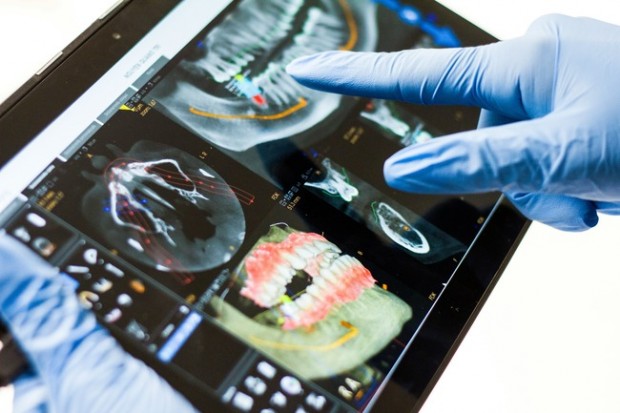
Utilizing AI for Dentistry
The University of Illinois Chicago is leading the way in artificial intelligence applications for diagnosis, treatment planning, and remote monitoring, ushering in a new age in dentistry.
Dentists at UIC and engineers from the College of Engineering have collaborated across disciplines to create AI algorithms that evaluate scans and radiographs, transforming treatment approaches.
Under the direction of Professor Ahmet Enis Cetin, the group transforms orthodontic treatment choices by using deep learning and image analysis to evaluate patient maturity from X-rays.
The AI model developed by Dr. Mohammed Elnagar's team, which operates 18 years of dental records to determine whether a patient is better off with braces alone or with extra surgical intervention, won praise.
Moreover, 3D tooth models generated from home scans enable remote monitoring, reducing in-person visits.
AI algorithms detect progress and potential complications, matching clinical scan quality. Clinical trials assessed the efficacy of AI-guided remote treatment decisions.
Dr. Min Kyeong Lee underscored the significance for distant patients, reducing travel burdens and enhancing treatment accessibility.
UIC's pioneering AI applications signal transformative potential in dental care delivery.
Dentists aim to predict future patient needs by integrating genomics into orthodontic care. Dr. Allareddy leads UIC's AI research, foreseeing personalized treatments by linking genes to tooth changes.
However, dentistry needs data-sharing infrastructure. To bridge this, a proposed blockchain system could revolutionize global dental research, enabling collaborative AI-driven analyses for unbiased, inclusive care.
Also Read: Software Development in Healthcare Industry: Major Achievements of 2021
AI For Liver Health Monitoring
In a recent report here in Mobile and Apps, an international team led by Dr. Patrick Starlinger from Mayo Clinic Comprehensive Cancer Center crafted a groundbreaking risk prediction model accessible through a smartphone app.
This innovation, detailed in the Annals of Surgery, enhances liver surgery safety by predicting potential post-surgical liver failure.
Utilizing data from over 14,000 patients, the app offers a personalized approach, considering individual patient factors.
This advancement, leveraging essential patient traits, provides a less invasive yet highly effective alternative to traditional liver function tests.
Dr. Starlinger emphasized its capacity to customize risk evaluations, heralding a new era in surgical safety and highlighting the potential of smartphone applications to transform healthcare practices.
Related Article: Liver Surgery Safety Soars with Revolutionary Smartphone App
most read
related stories
more stories from News
-
Walmart CEO Ephasizes Walmart App Usage in Stores Amidst Reevaluation of Self-Checkout Systems
Walmart CEO emphasizes Walmart app usage in stores amidst a reevaluation of self-checkout systems. Learn more by reading the article!
ernest hamilton -
One UI 6.1.1 Reportedly Introducing Video AI Features to Samsung Devices
One UI 6.1.1 reportedly introduces exciting video AI features to Samsung devices. Explore the latest enhancements!
ernest hamilton -
Tencent Set to Launch 'Dungeon and Fighter' Mobile Game in May
Tencent is gearing up to launch the 'Dungeon and Fighter' mobile game in May, promising an exciting new gaming experience for fans of the franchise.
ernest hamilton -
Apple Confirms iPhone AI Plans with New Software Release, Unveils Eight Small AI Language Models for On-Device Use
Apple's latest software release confirms iPhone AI plans, unveiling eight small AI language models for on-device use, promising enhanced performance and privacy.
ernest hamilton -
HMD's Debut Self-Branded Phones: All Under $200
HMD introduces budget-friendly phones, all under $200, promising affordability without compromise.
ernest hamilton -
Google Rolls Out Android 15 Beta 1.2, Offering Pixel Devices Additional Bug Fixes
Experience the latest Android 15 Beta 1.2! Pixel users, unlock additional bug fixes and enhancements now!
ernest hamilton -
Google-Backed Glance Launches Pilot of Android Lockscreen Platform in US
Check out the latest from Glance! They're piloting their Android Lockscreen Platform in the US. Don't miss it!
ernest hamilton -
X Plans Smart TV App, Promising Immersive Entertainment Experience
Exciting news! X plans to launch a Smart TV app for an immersive entertainment experience. Stay tuned!
ernest hamilton






